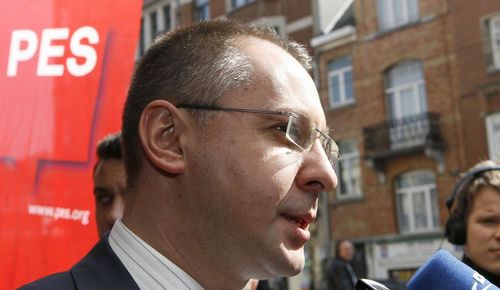 An article in the Economist magazine reports that Bulgarian Prime Minister Sergei Stanishev has proposed a kind of committee of European Union officials to visit Bulgaria in order to monitor and enforce progress in the country’s drive against corruption and organised crime.
An article in the Economist magazine reports that Bulgarian Prime Minister Sergei Stanishev has proposed a kind of committee of European Union officials to visit Bulgaria in order to monitor and enforce progress in the country’s drive against corruption and organised crime.
Stanishev’s idea follows the European Commission’s decision to withhold 220 million euro in funds last year after the Commission judged that Bulgarian authorities had not done enough in crucial areas since its accession in 2007.
The Economist reports that “the plan proposes that European officials and diplomats should be involved in monitoring implementation of laws, managing EU funds and supervising courts, prosecutors and investigators. They would follow cases of political corruption and organised crime that the judicial system has been slow to tackle.”
According to the report, Stanishev first approached EU president Jose Manuel Barroso earlier this month about the idea but met with a “cool” response on the basis that he was reluctant to countenance the idea of introducing a parallel structure of any kind to the EU.
The article goes on to say that EU ambassadors to sofia were also sceptical about the idea for several reasons. Apparently one senior diplomat said that it would be wrong to “wrest the carrot and stick” away from the commission, which is politically independent and enjoys the trust of EU members – unlike the Bulgarian government. “Indeed, some ambassadors detect a wheeze by Bulgaria’s Socialists to tell voters that the EU has ‘newly regained trust’ in the government before an election in June. Putting the commission and EU members in charge of reforms might also inhibit future criticism.”
The report continues that the Bulgarian government is apparently continuing to press its plans despite the negative response it has received. And the article notes that, according to polls, most Bulgarians would welcome a wider role for the EU on the basis that they trust the judgments of EU institutions more than they do their own.
 Eurasia Press & News
Eurasia Press & News
